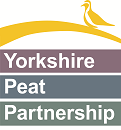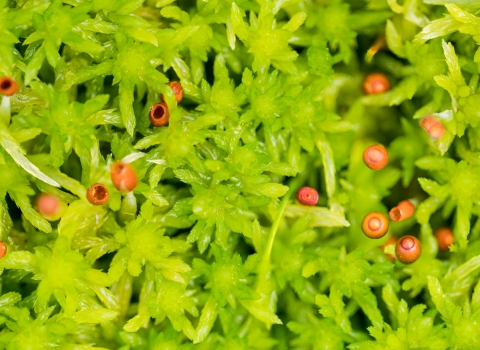Excellent course with stimulating discussion that has really helped me develop my thinking regarding peatland restoration and develop skills to deliver it more efficientlyNNR South Cumbria
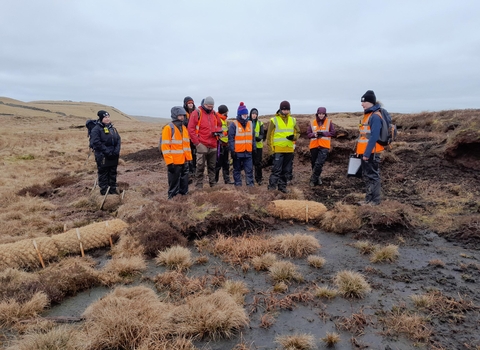
Peatland practitioner LANTRA students on Fleet Moss © Ellen Shield
Why Become a Peatland Restoration Practitioner?
Peatlands form an integral part of the UK’s landscape: first and foremost they are astonishing and vital habitats; they mitigate flooding downstream during storm events; and their preservative properties offer us a window into bygone millennia. They are valuable stores of carbon and an important part of tackling climate change.
Historical land management has limited their ability to carry out these services; however, large-scale restoration work can help bring back functionality in these environments. With circa 80% of peatlands degraded, there is a lot of work to do and currently not enough people with the diverse skillset required. The Peatland Restoration Practitioners course addresses this need and is aimed at building sector capacity for the future.
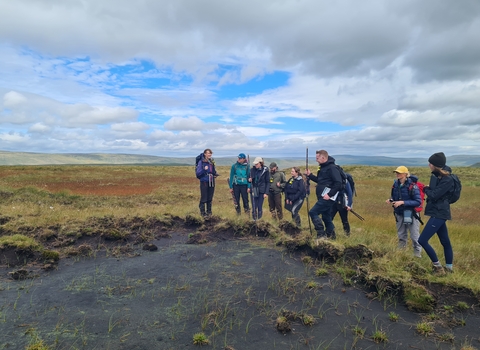
Peatland practitioner students receiving training in the Yorkshire Dales © Tess Levens
About the course
The Peatland Restoration Practitioner course was developed by Yorkshire Peat Partnership (YPP) with guidance from Dr Tim Thom and Dr Chris Miller, and is accredited by LANTRA. The course draws on YPP’s 15 years of experience in all aspects of large-scale blanket bog restoration, and is taught by YPP staff working at the forefront of innovative best practice.
The Peatland Restoration Practitioner course equips you with the skills and knowledge to deliver peatland restoration at scale. Join us to:
- Develop skills in peatland restoration design and implementation, from survey to construction
- Gain accreditation to accelerate your career
- Professionalise skills and understand sector best practice
- Make a real impact on your local community and the global climate
Attending the course
- Location: In and around Skipton, North Yorkshire
- Duration: 6 days split into two 3-day sessions
- Format: 4 classroom-based learning days, 2 site visit days
- Learning Experience: In-person instruction in small classes
- Prerequisites: Prior experience of QGIS software
- Assessment: Portfolio of short written activities
- Outcome: LANTRA-accredited certificate upon successful completion
- Price: £ 1,000 + VAT
I thought the whole course was really interesting and it was great to get out to the field sites and see the restoration prescriptions out on site. It was also really great to meet other people working in the same field and hear other people’s experiences of what kind of sites they have and the challenges that they are experiencingNorthumberland Peat Partnership

LANTRA participants on Fleet Moss © Sam Halliday
Phase 1: Preparation
- Peatland ecology - Learn about peatland formation, ecosystem services associated with peatlands, the historic and current threats faced by the UK’s blanket bogs, and sustainable management.
- Health and safety - Discuss hazard mitigation and risk assessment for working on upland peatlands. Understand the requirements of CDM Regulations (2015) when working with contractors on peatland restoration projects.
- Surveying - Explore peatland survey methodology. Harness QGIS for GPS enabled data collection. Identify blanket bog erosion features, habitats and indicator species.
- Practical restoration - Learn about peatland restoration techniques and see them in action on site.
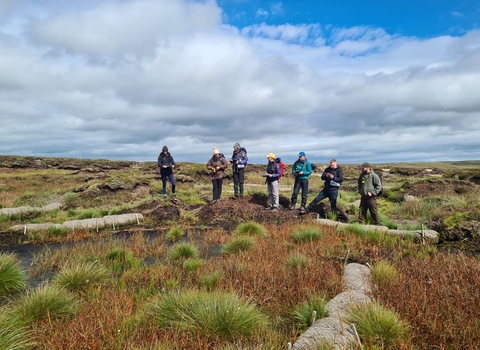
Phase 2: Delivery
- Restoration plans - Interpret survey data in QGIS. Understand the elements of a peatland restoration plan. Respond constructively to constraints and set-backs.
- Delivering restoration - Consider contractor procurement and works consenting processes for peatland restoration. Carry out quality control checks.
- Advocacy and evaluating success - Explore effective stakeholder engagement. Evaluate the impact of restoration works. Learn about monitoring methods.
- Peatland restoration funding - Discuss current funding streams for peatland restoration. Explore the future of peatland restoration funding.
The course is well aimed at those wishing to enter or are new to the field, it will be a helpful boost to get new team members of Northumberland Peat Partnership up and running swiftlyNorthumberland Peat Partnership
2025 Course Dates
| Cohort | Session 1 | Session 2 | Availability |
| 1 | 24-26 June | 15-17 July | waiting list only |
| 2 | 1-3 July | 22-24 July | waiting list only |
| 3 | 5-7 August | 26-28 August | waiting list only |
| 4 | 12-14 August | 2-4 September | waiting list only |
NB: Candidates are required to attend both sessions of their chosen cohort. Please see our terms and conditions and policies.
To be the first to hear about the next available training dates, contact us via the form below.
